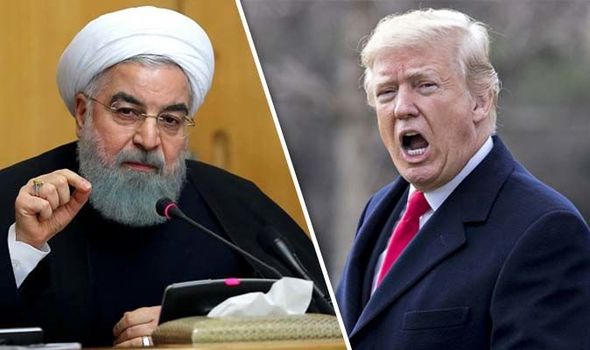Delegates from Iran and the United States are scheduled to begin a fifth round of crucial nuclear negotiations in Rome on Friday. These talks occur against a backdrop of increasing skepticism within Tehran regarding the prospects for an agreement, as Washington adopts a firmer stance.
Two Iranian sources have indicated to CNN that a breakthrough in the discussions appears unlikely. The core sticking point remains the US insistence that Iran dismantle its uranium enrichment program. Iranian officials have repeatedly stated that such a demand would lead to the collapse of the nuclear negotiations.
Prior to his departure for Rome on Friday, Iranian Foreign Minister Abbas Araghchi reiterated Tehran’s established red lines. In a post on X, he stated, “Figuring out the path to a deal is not rocket science. Zero nuclear weapons = we DO have a deal. Zero enrichment = we do NOT have a deal.”
The US maintains that Iran must cease all uranium enrichment activity, with US negotiator Steve Witkoff asserting that this process “enables weaponization.” Uranium, a fundamental nuclear fuel, can be utilized in the creation of nuclear weapons if enriched to high levels. Iran insists that its nuclear program is exclusively for peaceful purposes and has expressed a willingness to commit to not enriching uranium to weapons-grade levels as part of a comprehensive agreement.
Speaking on Thursday, Araghchi affirmed Iran’s openness to enhanced monitoring by international inspectors. However, he underscored that Iran would not relinquish its right to pursue nuclear energy, including uranium enrichment. The US offer in exchange for denuclearization involves the easing of stringent economic sanctions imposed on Iran.
While the US had previously conveyed ambiguous signals regarding the possibility of Iran being permitted to enrich uranium, its position has hardened in recent weeks, with an insistence that no enrichment will be allowed. This shift in stance has prompted officials in Tehran to question the US commitment to reaching a mutually acceptable agreement, as Iran has consistently identified enrichment as a non-negotiable red line in the negotiations.
The two Iranian sources who spoke to CNN conveyed a growing sense of doubt within Tehran regarding the sincerity of the US in the ongoing talks. In a joint statement, they said, “The media statements and negotiating behavior of the United States has widely disappointed policy-making circles in Tehran. From the perspective of decision-makers in Tehran, when the US knows that accepting zero enrichment in Iran is impossible and yet insists on it, it is a sign that the US is fundamentally not seeking an agreement and is using the negotiations as a tool to intensify pressure.”
Initially, the sources noted, some Iranian officials held the belief that Washington might be pursuing a “win-win” compromise. However, a prevailing consensus has now emerged suggesting that the Trump administration is guiding the discussions towards an impasse.
The sources indicated that while neither the US nor Iran wishes to formally withdraw from the negotiating table, the current US position is rendering the talks unproductive. They anticipate that formal meetings are unlikely to continue for an extended period.
They further stated that Tehran no longer gives credence to US attempts to distance itself from Israel’s hardline stance on Iran’s nuclear program. They perceive the proposals put forth by the American side as aligning with the agenda of Israeli Prime Minister Benjamin Netanyahu, who has consistently demanded that no uranium enrichment be permitted in Iran.
The Iranian delegation in Rome on Friday intends to ascertain whether the US has revised its approach. The sources suggested that Tehran will likely adopt a more stringent negotiating position unless the US offers tangible concessions.
US Imposes Further Sanctions Ahead of Talks
Simultaneous with the ongoing diplomatic engagement, Washington has maintained pressure on Iran through the imposition of new sanctions and the articulation of potential military action.
On Wednesday, the US State Department announced additional restrictive measures, identifying Iran’s construction sector as being under the direct or indirect control of the Islamic Revolutionary Guard Corps (IRGC). The State Department also identified 10 strategic materials that it alleges Iran is utilizing in connection with its nuclear, military, or ballistic missile programs.
State Department spokesperson Tammy Bruce stated, “With these determinations, the United States has broader sanctions authorities to prevent Iran from acquiring strategic materials for its construction sector under IRGC control and its proliferation programs.”
Iran’s foreign ministry spokesperson criticized US Secretary of State Marco Rubio for this action, denouncing it as “as outrageous as it is unlawful and inhuman.” In a post on X, Baqaei wrote, “The US’s consecutive rounds of sanctions only reinforce our people’s deeply held belief that the American decision makers are set to make every malign effort to hinder Iran’s development & progress. These sanctions, announced on the eve of the fifth round of Iran-US indirect talks, further put to question the American willingness & seriousness for diplomacy.”





Discussion about this post